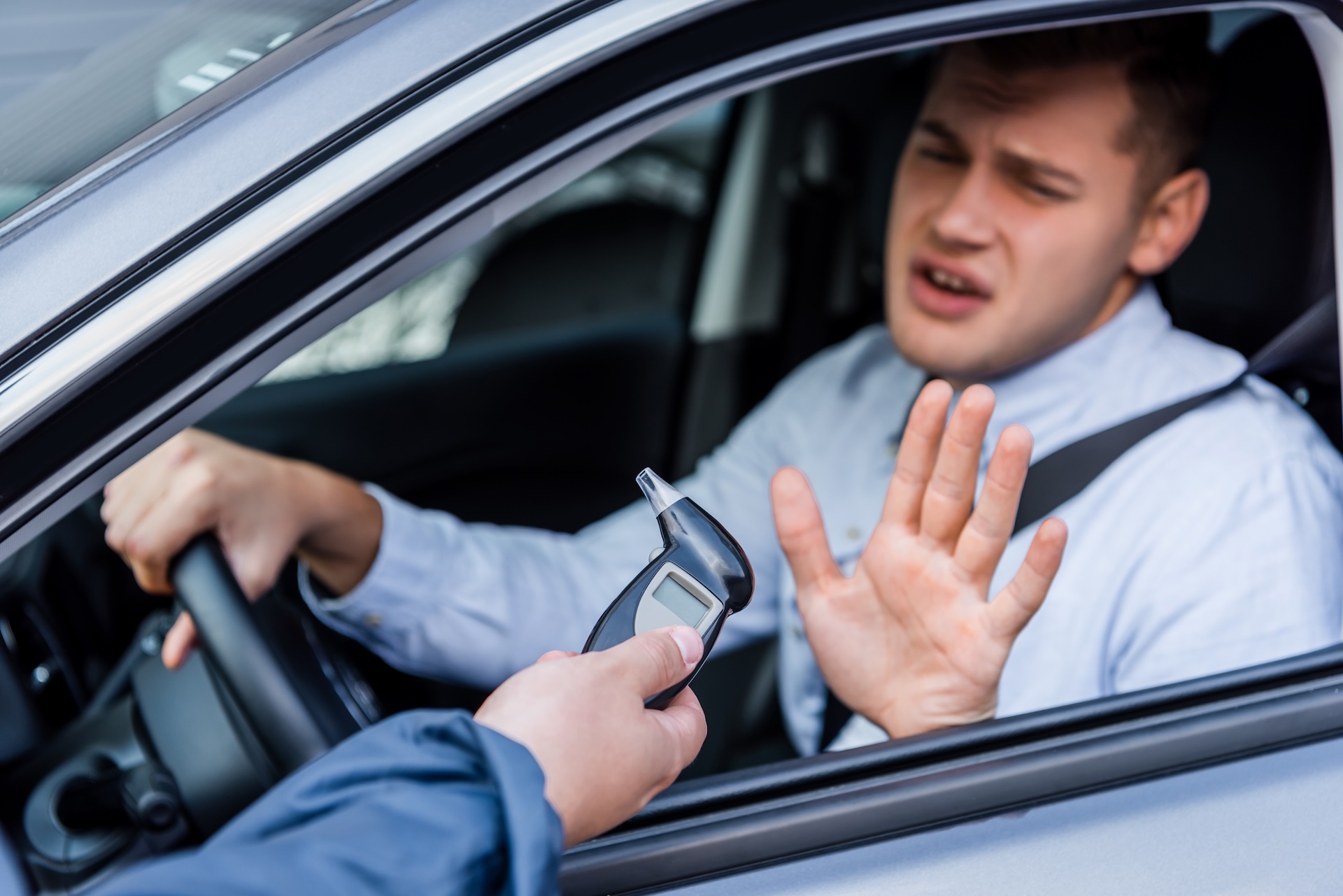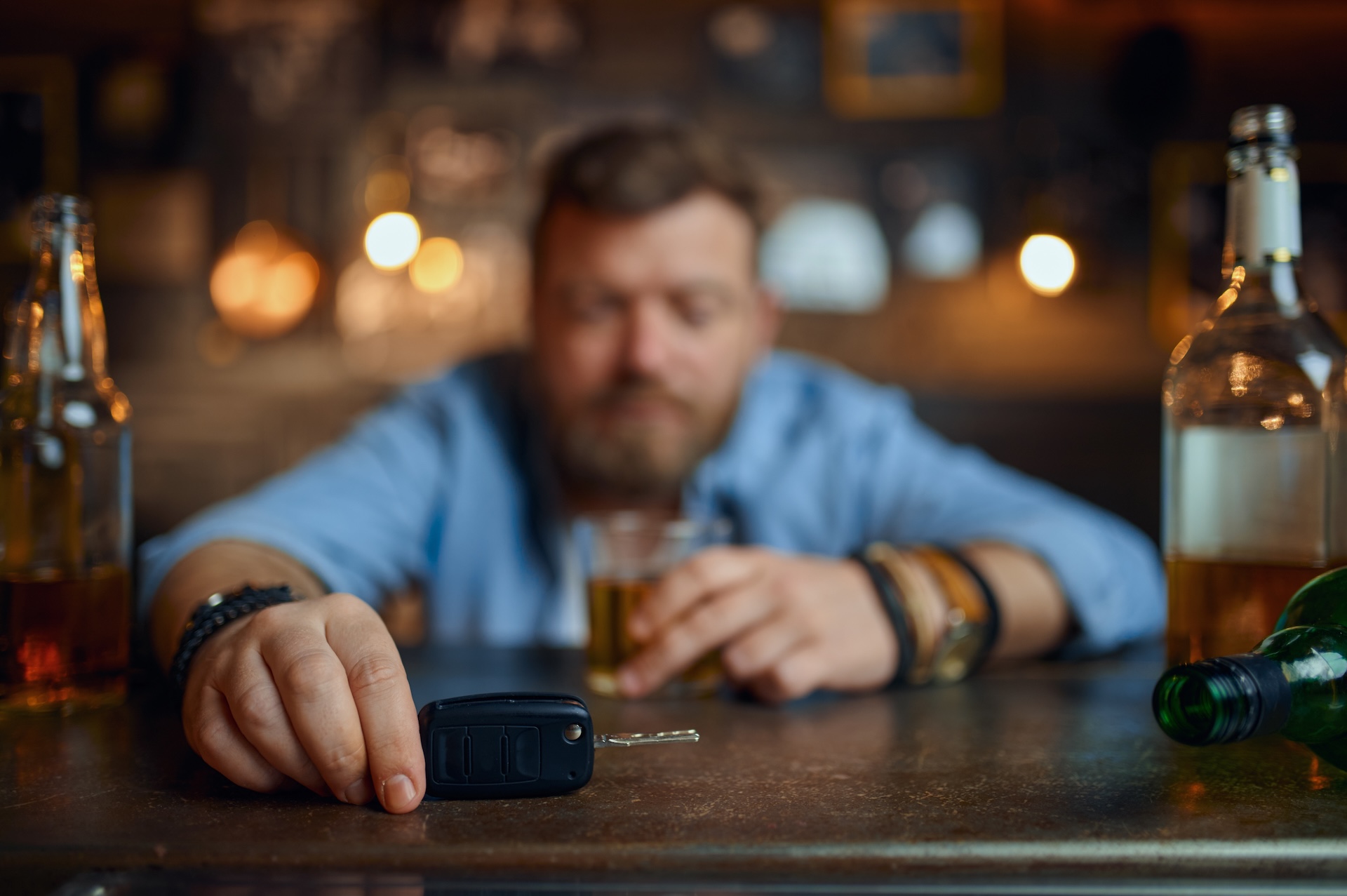Breath and Blood Testing in Texas DWI Cases: What You Need to Know
If you’ve been arrested for Driving While Intoxicated (DWI) in Texas, chances are that breath or blood testing played a major role in your case. Whether you took the test voluntarily or were forced to submit under a warrant, the results could have a significant impact on your future.
However, just because you failed a breath or blood test doesn’t mean your case is hopeless. At Griffin & Cain, Attorney at Law, PC, we know that these tests, while powerful evidence for the prosecution, they are not perfect. With the right legal defense, it may be possible to challenge the results, reduce the charges, or even get your case dismissed.
We represent clients in Conroe, The Woodlands, and across Montgomery, Harris, Walker, and Grimes Counties, providing experienced and aggressive defense against DWI charges.


How Texas Defines Intoxication
Under Texas Penal Code § 49.01, a person is considered legally intoxicated if they:
- Have a blood alcohol concentration (BAC) of 0.08% or higher, or
- Do not have the normal use of mental or physical faculties due to alcohol or drug use.
A breath or blood test is used to determine BAC. However, test results are just one piece of evidence, and they are often subject to challenge.
Breath Testing in Texas DWI Cases
How It Works
Texas law enforcement uses Intoxilyzer 9000 machines to administer breath tests. These devices analyze a deep lung air sample and estimate the amount of alcohol in the bloodstream.
When It’s Used
Breath tests are typically administered at the police station after arrest. While some portable breath tests (PBTs) may be offered at the roadside, only the results from station-based breathalyzers are admissible in court.
Legal Implications
If your BAC is 0.08% or higher, the state may use that as evidence of per se intoxication. However, if your BAC is below that threshold, you can still be charged with DWI if the officer believes you lacked normal use of your faculties.
Blood Testing in Texas DWI Cases
How It Works
A blood test measures your exact BAC (or presence of drugs) through a laboratory analysis. Blood is drawn by a licensed medical professional, often at a hospital or jail facility, and sent to a DPS-certified lab for testing.
When Blood Tests Are Used
Blood tests are typically used when:
- A breath test is refused
- The DWI involves serious injury or death
- Drug impairment is suspected
- A search warrant is obtained for a blood draw
Legal Requirements
Blood draws must follow strict procedural guidelines. Failure to follow proper protocols can lead to suppression of the test results in court.
Refusing a Breath or Blood Test
Texas is an implied consent state. That means when you drive on Texas roads, you are deemed to have consented to chemical testing if lawfully arrested for DWI.
However, you can refuse to take a breath or blood test. But doing so comes with consequences:
- Automatic license suspension through the ALR (Administrative License Revocation) process
- Use of your refusal as evidence of guilt in court
- Possible search warrant for a mandatory blood draw
Refusal does not mean you’re safe from prosecution. It simply shifts the strategy of the case.
Challenging Breath and Blood Test Results
At Griffin, Cain & Herbig, we know that no chemical test is flawless. There are multiple ways to challenge the validity of breath and blood evidence.
- Improper Administration
Breathalyzer tests must be administered by certified officers using properly calibrated machines. If the device was out of date, not maintained, or misused, the results may be unreliable.
- Medical or Biological Factors
Certain medical conditions, such as GERD, diabetes, or low-carb diets, can affect BAC readings. For example, acetone in the breath of a diabetic person can be misread as ethanol by a breathalyzer.
- Contamination or Mishandling of Blood Samples
Blood samples must be drawn, stored, and tested under precise conditions. If there is any contamination, fermentation, or chain-of-custody issue, the results may be challenged or excluded.
- Unjustified or Defective Warrants
If a warrant was used to obtain a blood sample, we examine whether it was issued lawfully and based on sufficient probable cause. Any defect in the warrant process can lead to suppression of the evidence.
- Margin of Error and Rising BAC Defense
Chemical tests are not exact. Most breath and blood testing devices have a margin of error of ±0.01% or more. If your test result was just over 0.08%, we may argue that you were under the limit while driving, and your BAC rose while waiting for the test.
Texas Law on Drug Testing in DWI Cases
Breath tests detect alcohol, but not drugs. If drug impairment is suspected, a blood test will be used to detect the presence of:
- Marijuana
- Prescription medications (like Ambien, Xanax, or painkillers)
- Illegal drugs (such as cocaine or methamphetamine)
However, simply having a drug in your system does not prove impairment. We work to show that the presence of a substance did not affect your ability to drive safely.
Consequences of Failing a Chemical Test
If your breath or blood test shows a BAC over the legal limit, or any measurable amount of drugs, the prosecution will likely rely heavily on that evidence. But remember, a test failure does not automatically mean conviction.
Penalties for a DWI conviction in Texas may include:
- Fines ranging from $2,000 to $10,000
- Jail or prison time
- Driver’s license suspension
- Annual surcharges to retain your license
- Probation
- Ignition interlock device
- A permanent criminal record
Challenging the test results can be a vital step in avoiding these outcomes.
We’re Available To Speak With You
Contact Our Office
Today
We will provide a complimentary consultation so that you can discuss your issue with us. Get started by calling us or contacting us via email, and we will respond as soon as possible.
A Few Words From Satisfied Clients
From the start, John approached my case with compassion, integrity, and a deep understanding of how high the stakes were for my family. He listened closely, advised me wisely, and fought with heart and determination to ensure that our side of the story was heard. He treated me not just as a client, but as someone whose voice and lived experience mattered deeply.
Throughout this difficult journey, John never wavered. His professionalism, responsiveness, and strategic guidance gave me strength and confidence even in the most uncertain moments. He and his team poured countless hours into preparing a case grounded in truth, love, and the best interests of my granddaughter.
Though the final decision was not what we had prayed for, I will always be thankful for the dignity, support, and relentless effort John and his firm gave to our family. I would recommend him wholeheartedly to anyone seeking strong, ethical, and empathetic representation.
With deep appreciation,
Rhonda Brown
Texas
What stood out the most was his ability to resolve my legal matters in a way that allowed me to continue living my life stress-free. Knowing he had everything under control gave me such peace of mind. He was always available to answer my questions and made me feel like a priority every step of the way.
If you’re looking for a reliable, communicative, & skilled attorney, I wholeheartedly recommend John Herbig! He made a difficult situation so much easier to navigate, and I’m truly grateful for his work. Thank you John!

The Role of an Experienced DWI Attorney
The sooner you hire a lawyer, the more options you have to protect your license and challenge the evidence. At Griffin, Cain & Herbig, we:
- Review all police reports, test records, and lab results
- File suppression motions for illegally obtained or faulty evidence
- Cross-examine lab technicians and arresting officers
- Identify violations of testing protocols
- Negotiate for case dismissal, charge reduction, or alternative sentencing
We fight for dismissals and not-guilty verdicts. When that’s not possible, we fight for second chances.
We’re Available To Speak With You
Contact Our Office
Today
Phone:
Email:
info@griffinandcain.com
Address:
400 W. Davis St., Suite 200. Conroe, TX. 77301
